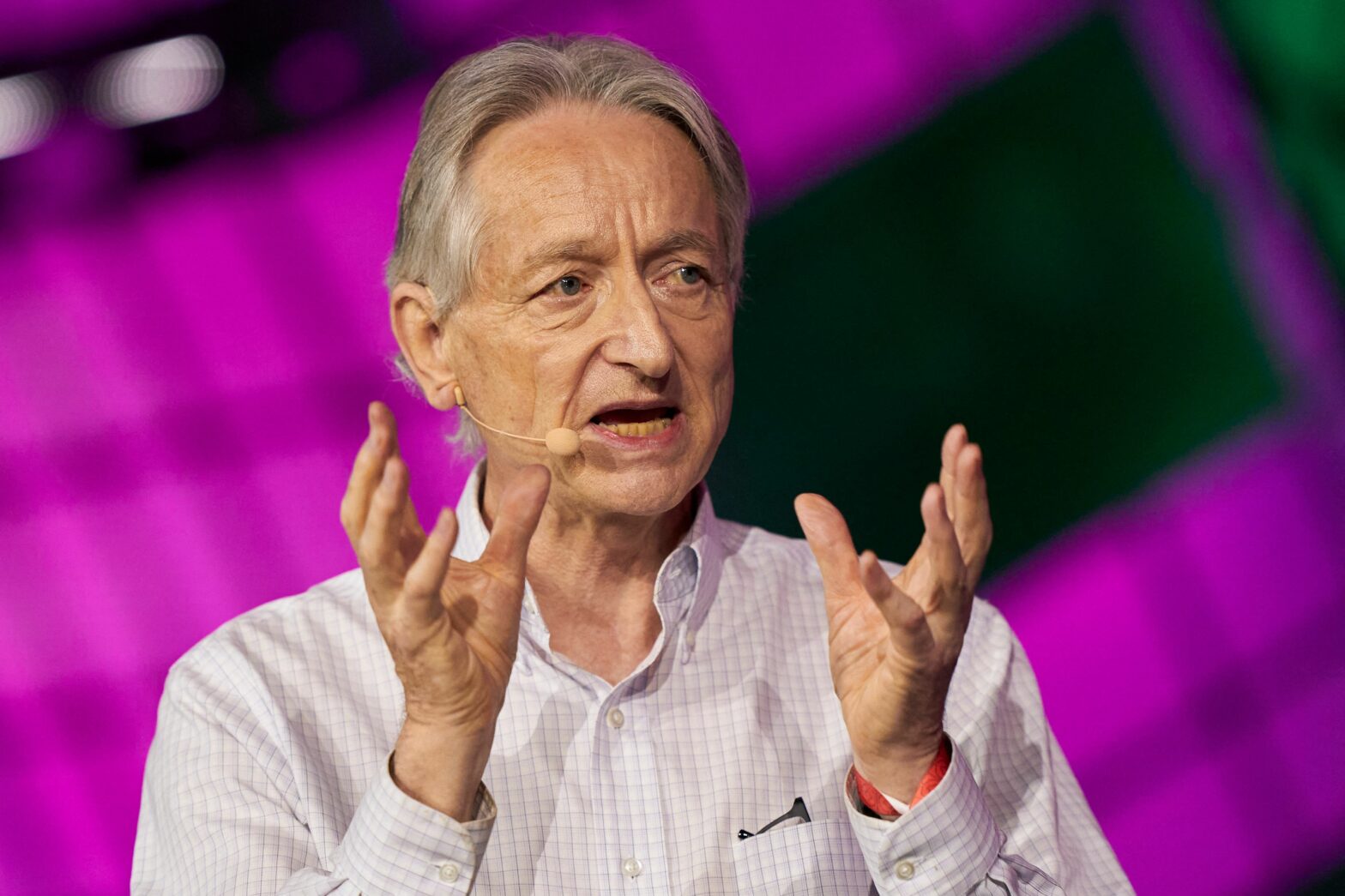Geoffrey Hinton, who has been called “the godfather of AI”, realised that mankind’s days were numbered when artificial intelligence could explain a joke.
Professor Hinton, who created waves when he quit his job at Google partly in order to sound the alarm over the existential threat AI poses to humanity, said: ““PaLM [Google’s AI system] could actually explain why a joke was funny.”
Another Damascene moment came when Hinton realised how good neural networks are at sharing information with each other compared to humans. Humans, who share information at the sentence level, could be thought of as swapping bytes of information between each other compared to AI, which can instantly share gigabytes.
“That was the moment I realised that we were history,” concluded Hinton. “I’m pessimistic because pessimists are usually right.”
Professor Hinton was in conversation with Doctor Fei-Fei Li, professor of computer science at Stanford University, at a seminar organised by the University of Toronto, where Professor Hinton teaches.
What is generative AI and its use cases? – Generative AI is the is a technological marvel destined to change the way we work, but what does it do and what are its use cases for CTOs?
Li, who is also a vice-president of Google as chief scientist of AIML at Google Cloud, said that she first became anxious about AI in 2018 in the wake of the Facebook-Cambridge Analytica scandal, in which a tech company politically targeted Facebook users with campaign-ad messages.
Li said: “This is the moment that we really have to rise to the moment, not only as our passion as a technologist but also our responsibility as a humanist.”
Hinton confessed to an Eeyore-ish gloominess about humanity’s future now that AI, he believes, has understanding and intelligence and has passed the famous Turing Test, being indistinguishable from humanity.
Li though had a more upbeat view of the future, dependent on humanity acting now.
“I believe in humanity and the collective will,” said Li. “If we do the right thing, we have a fighting chance of doing things better. It’s fragile but if we all recognise the same thing, then there’s hope.”
Hinton said that people talk about the risks of AI but there is a actually a plethora of risks, including the risk of creating an underclass of people who will never have a job.
Hinton said: “The rich people are going to get richer, and the poor people are going to get poorer, and even if we have universal basic income, that’s not going to solve the problem of human dignity. Many people have a job because they feel they’re doing something worthwhile.”
What top tech leaders are saying about artificial intelligence – With artificial intelligence (AI) rising up the corporate, regulatory and societal agendas, we gauge the views of the key tech leaders in the space
Other risks posed by AI include imminent threats such as fake news being used in next year’s US election, and every country developing its own warfare robots.
“But the existential risk is that humanity gets wiped out because we have invented a better form of intelligence that’s smarter than us,” he warned.
“If things that are more intelligent than us want to take control then we won’t be able to stop them,” Hinton continued. “We have to stop them wanting control.”
The irony, said Hinton, is that mankind has discovered the secret to immortality, only it’s not our everlasting life which we have created.
The best we can hope for, Hinton added, is that AI keeps humans around as a kind of amusing toy, the way in which Greek gods supposedly meddled with human affairs just for fun.
Li however was more positive than Hinton, calling his Cassandra-like warnings about extinction “an interesting thought experiment”, but the reality was more nuanced than that.
“I don’t want to paint the picture of robots creating our machine overlords,” she said.
Li believes that, rather than create permanent mass unemployment, AI could help us move away from a labour economy to what she calls a dignity economy, where people do work which is meaningful instead of just chasing a pay check.
The one silver lining though, according to Hinton, is that artificial intelligence is still terrible at telling jokes, especially when it comes to landing a punchline “but we’ll get there. Being a comedian is not a job for the future”.
More on artificial intelligence
Yoshua Bengio – ‘Powerful tech will yield concentration of wealth’ – Professor Yoshua Bengio, one of the godfathers of AI, on which sectors will be revolutionized by AI, the need for tighter regulation, and whether AI poses an existential threat









